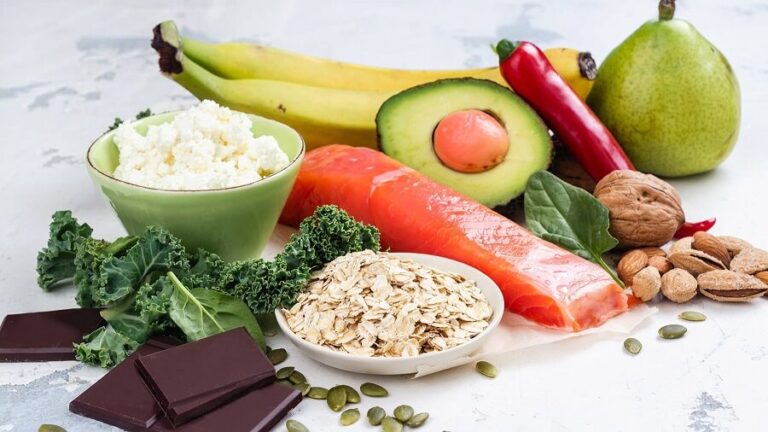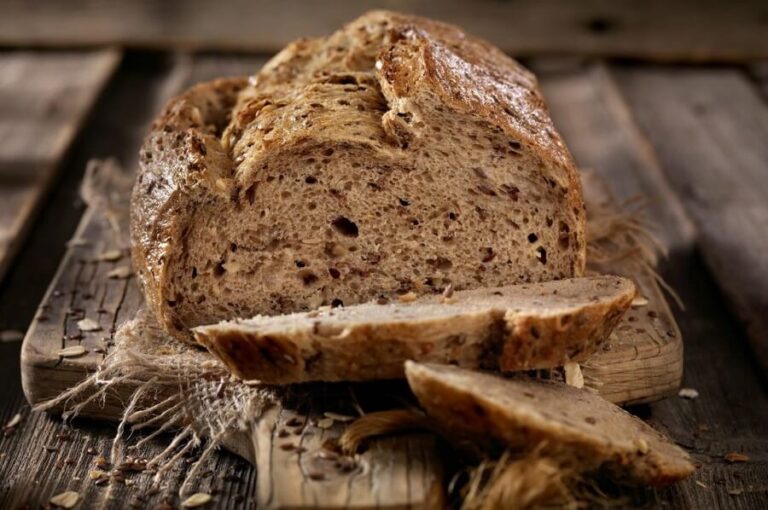For centuries, the potato has been a staple food and remains a frequently consumed vegetable today.
Potatoes contribute vital nutrients to the diet, including vitamin C, potassium, and dietary fiber. However, despite its nutrient density, its impact on human health remains somewhat controversial.
Some human research indicates that potatoes and their nutrients may have benefits such as reducing risk factors for chronic diseases, including blood pressure, cholesterol, and inflammation. (1)
On the contrary, observational data associate potato consumption with an increased risk of weight gain and type 2 diabetes, presumably due to the potato’s high glycemic index (GI). (3)
This article describes an overview of potatoes’ nutrients, benefits, and potential harms. As well as a critical examination of the effects of potatoes on general health with supporting scientific evidence.
Potato Nutrients
Potatoes contain various essential nutrients, primarily vitamins C and B6 and the minerals potassium, magnesium, and iron. In addition, the potato is a good source of protein; its content is very high compared to other roots and tubers.
According to FDA guidelines, one medium potato provides 27 mg of vitamin C, which qualifies it as an “excellent source” of vitamin C. And while potatoes may not compete with the vitamin C content of citrus fruits and peppers, they do contribute significantly to your daily vitamin C requirements. (1)
The highest levels of nutrients are found in freshly harvested potatoes. This is because long storage periods deplete the tubers of vitamin C and folic acid. (2)
A medium baked potato (or 173 grams), including the skin, provides (3):
- Calories: 161
- Fat: 0.2 grams
- Protein: 4.3 grams
- Carbohydrates: 36.6 grams
- Fiber: 3.8 grams
- Vitamin C: 28% of CDR
- Vitamin B6: 27% of the RDA
- Potassium: 26% of the RDA
- Manganese: 19% of the RDA
- Magnesium: 12% of the RDA
- Phosphorus: 12% of the RDA
- Niacin: 12% of the RDA
- Folate: 12% of the RDA
Potatoes contain many antioxidants.
Potatoes are rich in antioxidant phytonutrients, mainly flavonoids, carotenoids, and phenolic acids (2).
Carotenoids, such as lutein and zeaxanthin, are mainly found in yellow and red potatoes, although small amounts are also found in white potatoes.
These compounds act as antioxidants in the body by neutralizing potentially harmful molecules known as free radicals. When free radicals build up, they can increase your risk for chronic diseases like heart disease, diabetes, and cancer.
For example, the research found that antioxidants in potatoes can inhibit the growth of liver and colon cancer cells. (5)
Potatoes benefits
Potatoes with skin can have several health benefits.
- It can improve digestive health.
Potatoes contain a particular type of carbohydrate known as resistant starch. Research has linked resistant starch to many health benefits, including improving digestive health.
This starch is not broken down or wholly absorbed by the body. Instead, it reaches the large intestine, which becomes a source of nutrients for beneficial bacteria in the intestine. These bacteria digest it and convert it to short-chain fatty acid butyrate.
Studies have shown that butyrate can reduce inflammation in the colon, reduce the risk of colorectal cancer, and help people with bowel disorders such as colitis or Crohn’s disease. (8)
- Heart health
Hypertension, a condition characterized by an abnormally harmful high blood pressure, is one of the significant risk factors for heart disease.
Diets that contain foods that are good sources of potassium and low in sodium can reduce the risk of high blood pressure and stroke. This is the case with potatoes with skin. (2)
Additionally, potatoes contain several plant compounds that can help lower blood pressure. Examples of these substances are chlorogenic acid and kukoamines.
- Control of satiety and weight
Compared to other carbohydrate-rich foods, potatoes are remarkably filling.
Very filling foods can contribute to weight control, prolonging the feeling of fullness after meals and reducing food and calorie intake.
A study of 40 common foods found that potatoes are the most filling. (7) Therefore, eating potatoes in moderation can help you lose weight by helping you reduce your overall intake.
Possible health damage
Health concerns about potato consumption primarily involve an increased risk of diabetes, as consumption has been linked to being overweight.
Regarding diabetes, a recent meta-analysis provides evidence of a significant positive association between high consumption of potatoes and the risk of type 2 diabetes, especially the consumption of potato chips. (4)
According to the researchers, this supports the theory of substituting baked, boiled, or mashed potatoes for whole grains or other healthier alternatives to potentially reduce the risk of type 2 diabetes.
This is because potatoes have a high glycemic index (81 units), and their high amount of carbohydrates make them a vegetable to consume in moderation. In particular, for people with prediabetes or a tendency to diseases related to insulin resistance.
As for weight gain, it depends on the way of consumption. Studies emphasize avoiding French fries and chips. These are high-fat foods that promote overweight and harbor several harmful compounds to health.
French fries and chips can contain acrylamides, glycoalkaloids, and large amounts of salt, all of which can be harmful over time.
How do potatoes cook to maintain their nutrients?
How healthy it is to include potatoes in the diet depends on what is added or how it is cooked. Potatoes are nutrient-dense vegetables, but the way you eat them can cause them to be lost.
For example, when storage is followed by cooking that requires more than one preparation step, such as boiling and high-frying, the potato may have low levels of vitamin C.
It is also important to note that the skin of potatoes contains a large number of vitamins and minerals. So peeling potatoes can significantly reduce their nutritional content.
Also, while potatoes are low in fat, cooking and serving potatoes with high-fat ingredients (oil, fatty cheeses, and butter) results in a high-calorie dish.
In short, to cook potatoes and avoid the loss of nutrients, it is convenient to boil or roast them with their skin, preventing the addition of greasy ingredients.
ABSTRACT
Potatoes provide essential nutrients to the diet, including potassium, vitamin C, and dietary fiber. Research suggests that the components and nutrients in potatoes may have favorable effects on blood pressure, satiety, and gut health.
However, data from studies that examined the effects of potato consumption and typed two diabetes risks have found a positive relationship. Therefore, people with prediabetes or type 2 diabetes should control their consumption, particularly in its fried form.







